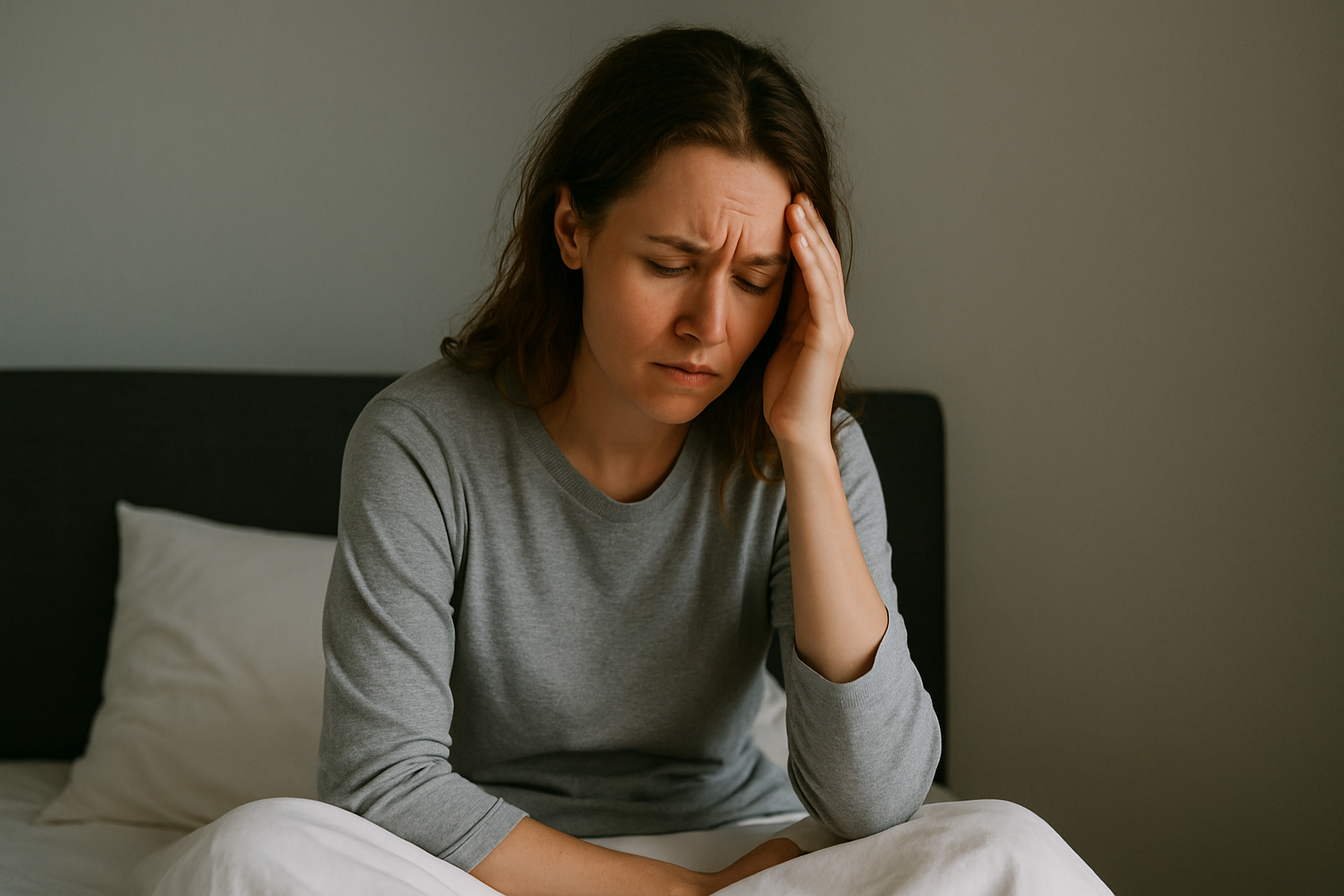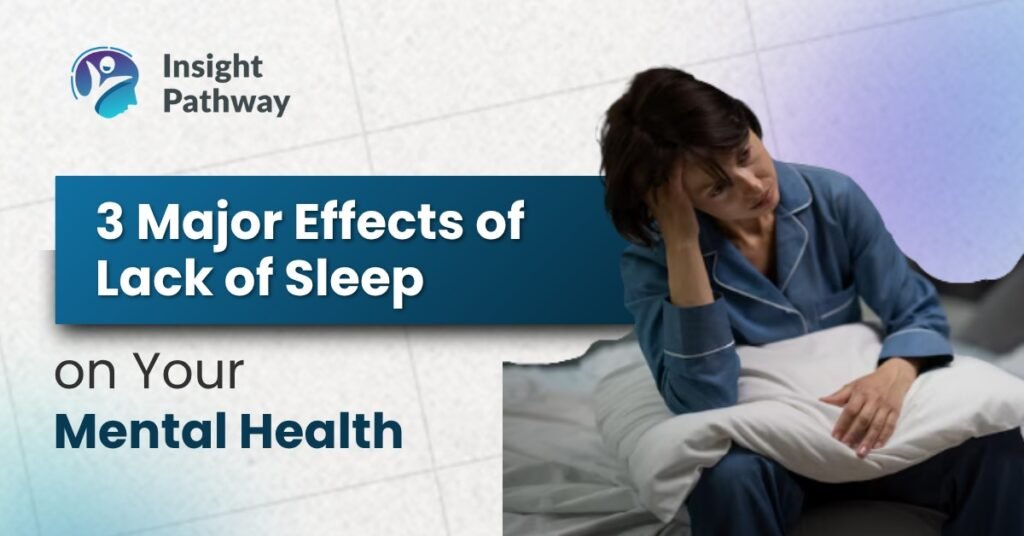We’ve all had those nights where sleep just doesn’t come easy. You toss, turn, check the time, and when the sun rises, you’re left feeling groggy, moody, and disconnected. But beyond just feeling tired, these restless nights can have deeper consequences. The effects of lack of sleep are more serious than most people think, especially when it comes to your mental health.
Sleep isn’t just rest. It’s a vital process that helps your brain recover, process emotions, and prepare for the next day. When we don’t get enough of it, everything starts to fall apart from our focus and mood to how we connect with others. Let’s explore how poor sleep can harm your mental health and what signs to look out for before it gets worse.

The Link Between Sleep and Mental Health
Sleep and mental health are closely connected. While many people used to believe that mental health problems cause poor sleep, new research shows the relationship goes both ways. A lack of sleep can actually cause mental distress and make existing mental health conditions worse. This cycle can be difficult to escape and often leaves people feeling trapped and emotionally drained.
Studies show that more than half of adults across the globe don’t get enough sleep or don’t get good quality rest. And sadly, many of them don’t even realize how it’s affecting their mental well-being.
1. Sleep and Depression: How Poor Sleep Affects Your Mood
One of the most common effects of lack of sleep is a change in mood for the worse. People who don’t sleep well are more likely to feel sad, unmotivated, or emotionally distant. In fact, scientists have found a strong link between sleep and depression. Lack of proper rest can raise the risk of depression, and being depressed can make it more difficult to sleep. This creates a harmful cycle that keeps repeating itself.
When you don’t get enough sleep, your brain has a hard time managing emotions. This can make little things feel like a big deal. Many people also report feeling hopeless, numb, or tearful for no clear reason. Others may experience heightened anxiety or start to isolate themselves from social interactions. In more severe cases, not getting enough sleep for a long time has been connected to seeing things that aren’t there, acting without thinking, and even having suicidal thoughts. Clearly, the connection between sleep and mental health is not just strong it’s essential to understand and protect.
2. Poor Sleep Increases Stress and Emotional Sensitivity
Another major consequence of not sleeping well is an increase in daily stress. When you’re tired, your brain becomes more reactive. You might find yourself snapping at loved ones, feeling anxious for no reason, or having trouble dealing with even minor setbacks.
This happens because sleep affects how the brain manages emotions. When we don’t get enough rest, the parts of the brain responsible for calm thinking and emotional control go offline. Meanwhile, the stress center of the brain becomes more active. This means that sleep deprivation doesn’t just make you feel tired it actually changes how you respond to the world.
Interestingly, stress and sleep also influence each other. Stress can make falling asleep harder, and not getting enough sleep can lead to even more stress the next day. This back-and-forth relationship can trap people in a loop where both their sleep and mental well-being continue to decline. The signs of sleep deprivation caused by stress include restlessness, racing thoughts at night, and feeling constantly on edge. You may even find yourself dreading bedtime because you know sleep will be hard to come by.
3. Lack of Sleep Weakens Focus, Memory, and Productivity
The effects of lack of sleep extend beyond just emotional well-being. Your ability to focus, think clearly, and stay productive also takes a hit. Sleep plays a key role in helping your brain process information and form memories. Without enough of it, you may struggle to concentrate, forget simple things, or feel mentally slow.
People often report making more mistakes at work or school after a bad night of sleep. It becomes difficult to stay organized, solve problems, or meet deadlines. This decline in performance can cause frustration, a sense of failure, and may even trigger anxiety. Some researchers have compared sleep deprivation to being legally drunk in terms of how much it affects your brain’s functioning.
What’s more, lack of sleep affects creativity and decision-making. You may find it harder to think outside the box or come up with new ideas. You may even feel emotionally numb or detached, as if you’re merely going through the motions of daily life. All of this affects your mental health over time, especially if poor sleep becomes a regular pattern.
Common Signs of Sleep Deprivation
It’s not always easy to know when lack of sleep is affecting your mental health. Here are some red flags to watch for:
-
Feeling tired all the time, even after sleeping through the night.
-
Trouble falling or staying asleep
-
Feeling irritable, anxious, or depressed
-
Difficulty concentrating or remembering things
-
Loss of interest in social activities
-
Using caffeine or sugar to stay alert
If you notice several of these signs, your body may be signaling that it’s time to improve your sleep habits.
Tips to Improve Sleep and Protect Your Mental Health
Thankfully, making small changes to your routine can help improve sleep and mental well-being. Here are a few easy yet effective steps you can follow:
1. Stick to a Sleep Schedule
Make sure to go to sleep and wake up at the same time each day, including weekends. This helps reset your internal clock and improves sleep quality.
2. Create a Relaxing Bedtime Routine
Relax before bedtime by doing soothing activities such as reading, gentle stretching, writing in a journal, or practicing deep breathing.
3. Keep Your Room Cool and Dark
A comfortable sleep environment is key. Use blackout curtains, eye masks, or white noise machines if needed.
4. Avoid Caffeine and Screens at Night
Avoid consuming caffeine for at least 6 hours before going to sleep. Also, reduce screen time in the evening, as blue light from phones and TVs can trick your brain into staying awake.
5. Get Help When Needed
If sleep problems continue, consider speaking to a doctor or therapist. Cognitive Behavioral Therapy for Insomnia (CBT-I) is a proven treatment for chronic sleep issues that affect mental health.
Final Thoughts
The effects of lack of sleep are more serious than just feeling tired. Poor sleep weakens your mental health, increases stress, affects mood, and lowers productivity. The signs of sleep deprivation may seem small at first, but they add up over time and can lead to more serious problems like depression or anxiety.
Luckily, by improving your sleep habits and understanding the effects of lack of sleep and the connection between sleep and mental health, you can take back control of your well-being. Better sleep isn’t a luxury — it’s a foundation for a healthy, happy life.
So tonight, aim for 7-9 hours of restful sleep. Your mind will thank you in the morning.


